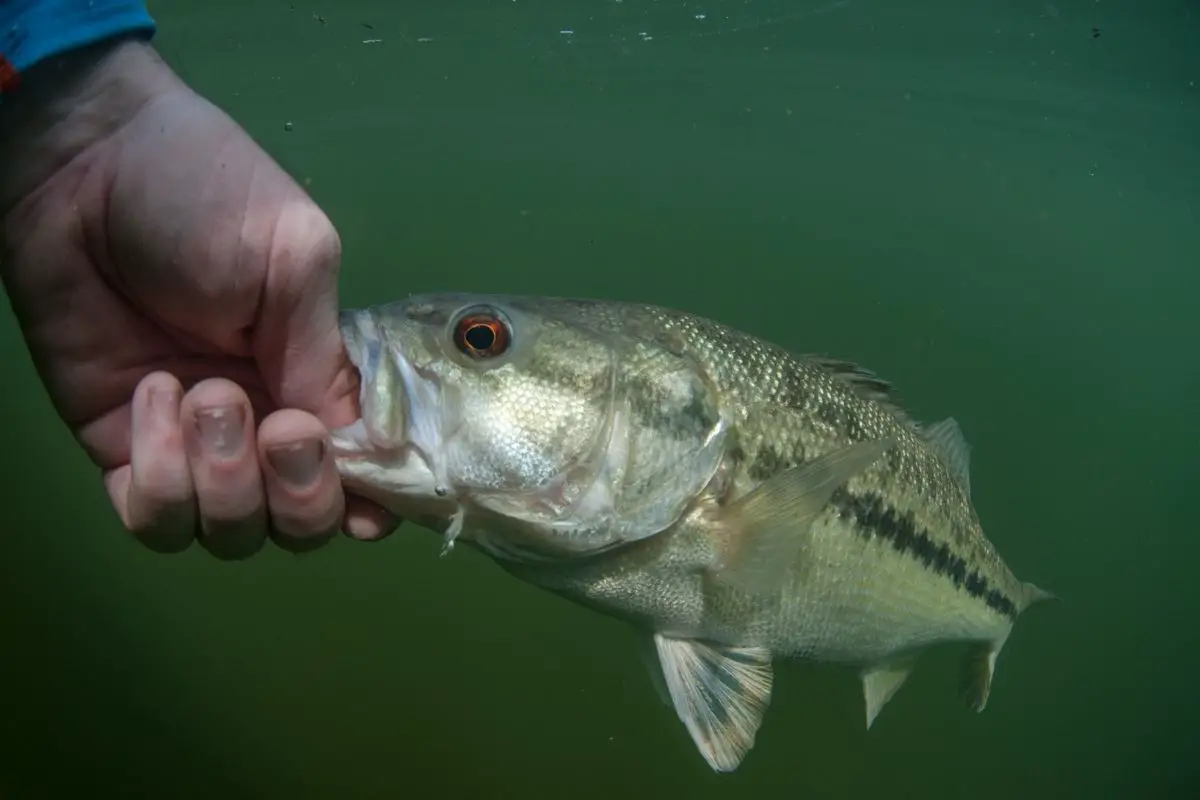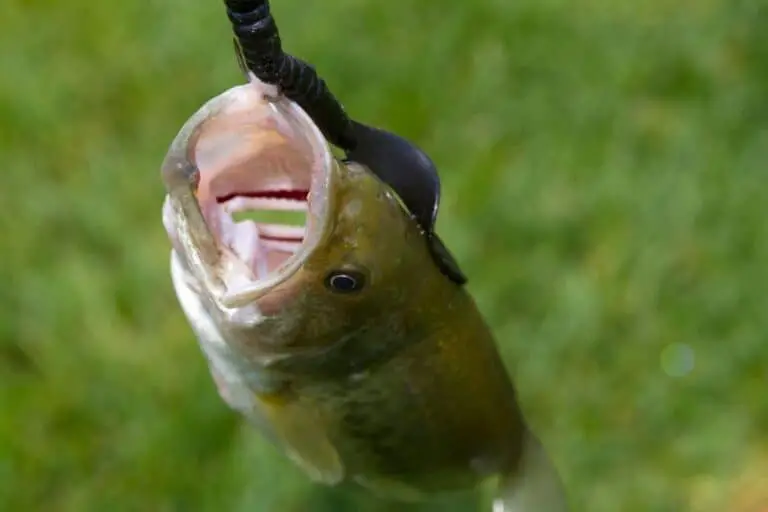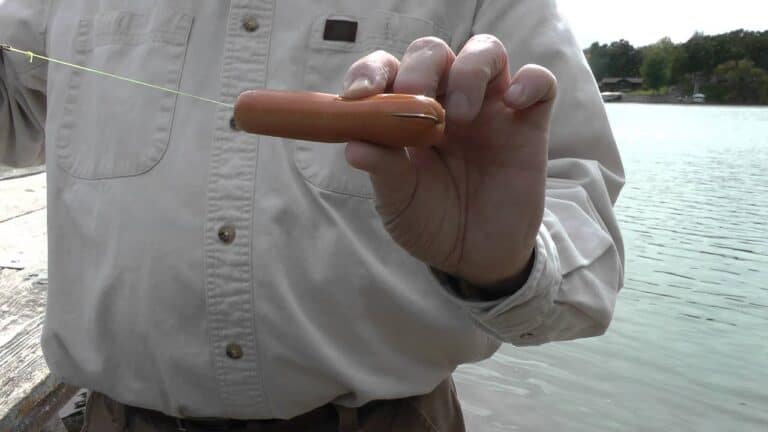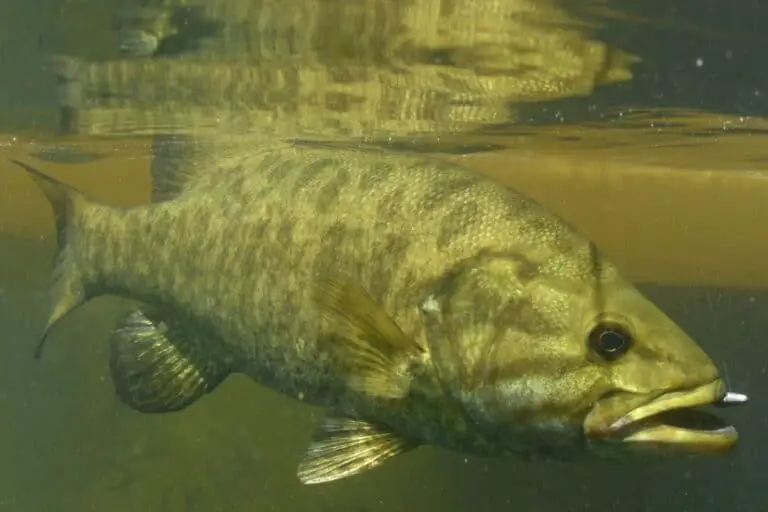Why Do Bass Have Red Eyes? The Fascinating Reasons
Various fish species display strange traits or attributes. For example, the catfish is known to make a noise identical to a dog’s bark, while sharks have eyelids, which is unusual because most fish do not have them.
When it comes to Bass, their strange attribute is that they sometimes have red eyes.
So, why do Bass have red eyes? Bass have red eyes because of their adaption to nature, as the red eyes might help them see better in the dark and in deep waters. Red eyes in Bass might also be caused by genetics and pigment discoloration.
Continue reading to explore more of the reasons behind Bass having red eyes!
Table of Contents
Why Do Bass Have Red Eyes?

There are various reasons why Bass have red eyes. However, the main reason is adaptation.
Adaptation, or the traits that animals gain as a result of survival of the fittest, becomes imprinted in their genetic structure.
Over the years, bass fish that reside in dark areas have developed red eyes to help them navigate their surroundings in the darkness better.
Another reason why Bass have red eyes is their genetics, as the red eyes are assumed to be a color abnormality or, in other words, a genetic defect.
Both of those reasons support each other as the bass fish that have developed red eyes to adapt years ago would’ve passed on the genes for red eyes to future generations.
How to Recognize Red-Eye Bass?
Typically, the first thing you’ll notice about red-eye Bass is that they have red eyes.
Their bodies are a blend of dark bronze and dark green, with pale stomachs. Along their side, they have black vertical lines or spots that fade with time.
Red eyes are also common in various bass species, including largemouth, smallmouth, and rock bass. So, it’s important to learn their characteristics to be able to tell them apart.
Did you also know that bass can have red lips? Find out why bass has red lips here.
Which Bass Types Have Red Eyes?
Here are some different species of Bass that can possess red eyes:
- Red Eye Bass: The red-eye Bass is the most popular type of Bass with red eyes. Red eyes are present in all red-eye Bass. It’s unclear why all red eye bass has red eyes, but it’s mainly attributed to genetics.
- Rock Bass: The rock bass is another kind of Bass that has red eyes; however, the reason behind it can vary. Also, not all rock bass possess red eyes; only a few do.
- Largemouth bass and smallmouth bass: The crimson eyes of these fish are considered to be caused by adaption and pigment deterioration.
What Is the Best Way to capture Red-Eye Bass?

One key challenge you’ll have to overcome as a fisherman to capture red-eye Bass is determining their location, finding the right time to target them, then utilizing the right lures and techniques to catch them.
These fish aren’t undetectable, and you can easily catch them the same way you would catch any other bass.
Where To Find Bass?
The first thing you need to consider when fishing for Bass is where to locate them.
Bass generally prefer living in shallower waters and areas with cover as this is where they find prey to feed on.
You can find them in shallow regions of lakes and reservoirs. You can also find them in rivers with vegetation, brush, trees, or structure for shelter.
Whether you’re fishing from land or from a boat, look for submerged trees, plants, docks, bridges, or shifts in bottom depth.
When Is the Best Time to Go Bass Fishing?
Another important to keep in mind when fishing for Bass is choosing the right time as they might not be active at certain times of the day or even certain times of the year.
So, you need to consider the time of the day as well as the season.
Bass bite well early in the morning or later in the evening (dawn or dusk) since they are adapted to hunt and eat in low light conditions. You can also learn how to catch bass at night here.
When it comes to the season, the greatest time to catch Bass is between spring and summer, as the temperature of water ranges from 60 to 80 degrees.
It is also their pre-spawning period during which they boost their eating habits to bulk up and gather all of the energy they require for reproduction.
This leads them to become more aggressive and energetic, boosting the likelihood that they will bite.
Something else that will definitely help you is having the right gear, and it starts with the right boat. I have tested dozens of them, and these are the best bass boats I’ve found.
What Is The Best Bait or Lure To Catch Bass?
Finally, you need to choose the right bait or lure to catch Bass, depending on the area you’re fishing in.
It’s always recommended to use a bait or lure that closely resembles the sort of prey that the Bass is likely to be eating in the water where you want to fish.
For example, creature baits such as soft plastic crayfish, frogs, and lizards are meant to look like these sorts of prey.
These soft plastic baits may frequently be made to be weedless, making it simpler to fish through vegetation.
Although there are many synthetic lures and baits to choose from, natural baits are typically the best choice when fishing with children or beginners.
Related Questions
Do Bass Change Their Color?
Some types of Bass can change their color, such as largemouth bass. This type of Bass tends to change its colors by shifting the pigmentation in its skin as a way to camouflage itself to hunt its prey better. It can appear in different shades of green to match the vegetation in the water.
Do All Bass Fish Have Red Eyes?
Not all bass fish have red eyes. The most common types of bass fish that have red eyes are rock bass, red-eye Bass, largemouth bass, and smallmouth bass. These types of Bass have red eyes because of adaptation or genetic defect that affects their pigmentation.
What Is the Best Fishing Technique to Catch Bass?
The best fishing to catch Bass is trolling. Another effective technique is fly fishing. The most important thing to keep in mind when trying to catch Bass is to find where they live, choose the right time, and use the right gear.
Helpful Resources
Smallmouth vs. Largemouth Bass: A Simple Guide
Become A Bass Wizard
- An angler is as good as his tools, Check out the best Bass Fishing rods here.
- Complete your gear with the best Bass Fishing reels here and the best Bass Fishing Lines here.
- It’s surprising how much a Good bass boat can make a difference, check out these awesome Bass Fishing Boats
- Attract Bass like magnets with these Bass winter lures, Bass Summer Lures, and Bass Spring Lures.
- Catch the biggest bass in the toughest conditions with this Winter Time Bass Fishing Guide
- Muddy waters? no problem. Use this Muddy water Bass Fishing Guide to get the best results.
If you like this article, please share it or pin it, you can find the share buttons below. We will really appreciate it ❤️




![Why Are Bass Boats So Fast? [Simply Explained]](https://outdoorskilled.com/wp-content/uploads/2021/11/bass-boat-speeding-768x512.jpeg)



